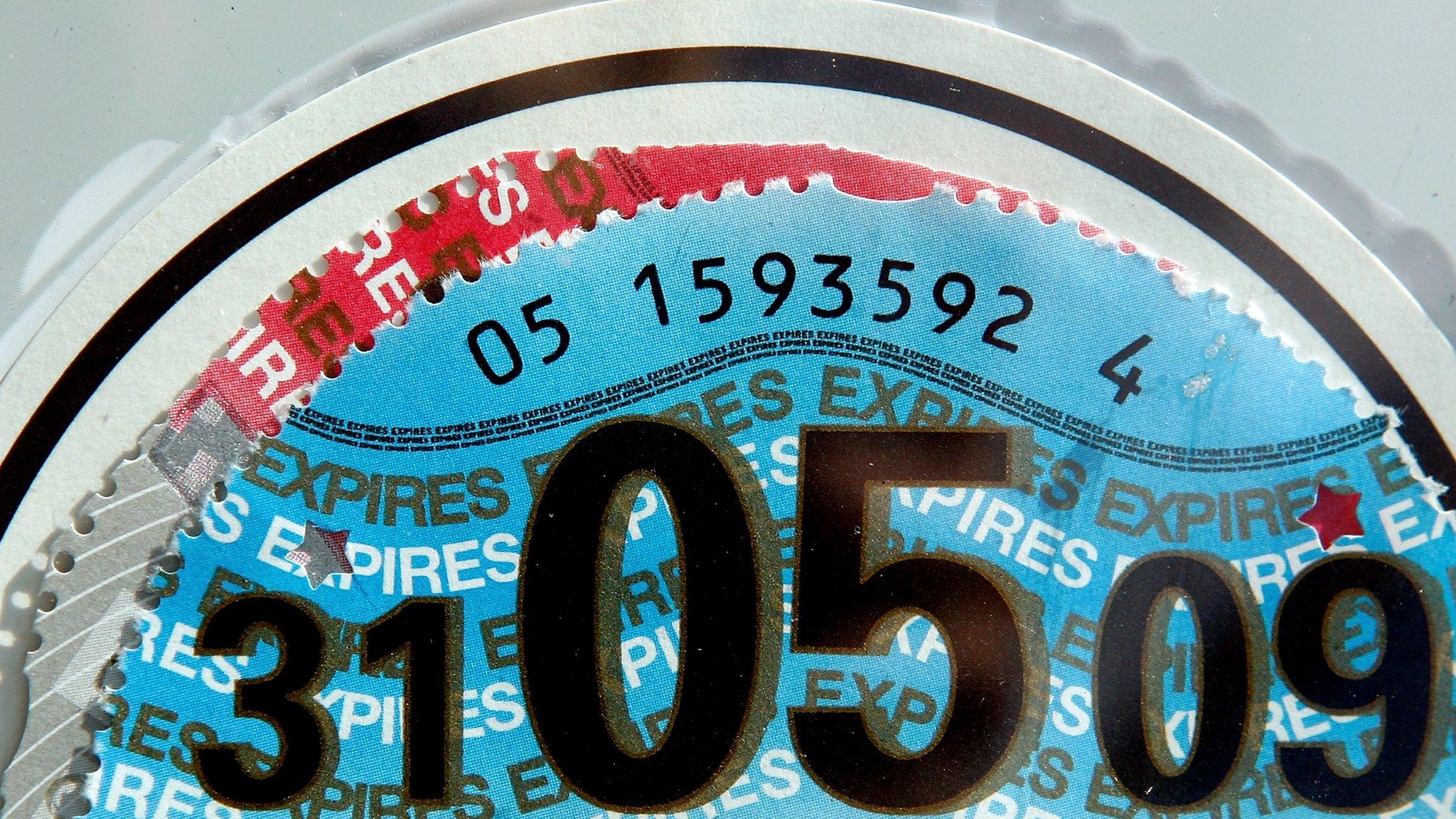Van towed away after tax discs scrapped
- Published
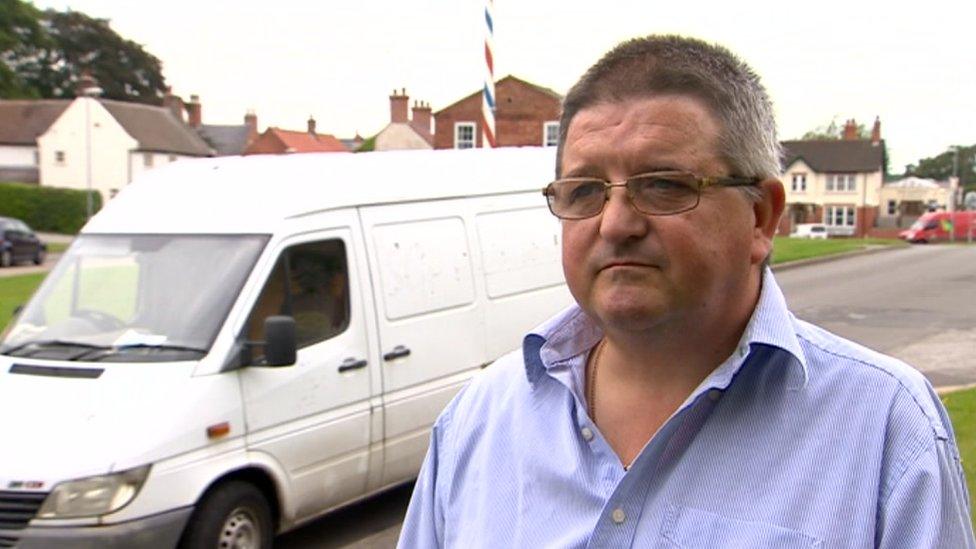
Dale Walker said he felt humiliated to have police tow his van away in front of his neighbours
A man had his van towed away by police despite it being taxed because of an error by the DVLA.
Dale Walker said physical evidence such as the abolished paper tax discs would have prevented it happening, and believes the new system is wrong.
Mr Walker, from Wellow in Nottinghamshire, offered to show police online evidence proving he had paid, but was told it was a "DVLA matter".
The DVLA accepted there had been a mistake but said these are "rare".
Mr Walker said he felt "humiliated" to have police tow his vehicle away in front of his neighbours on Saturday.
The handbrake of his van was damaged and he had to take two days off work to sort the problem out.
"There's something wrong with the system because you're not actually physically getting anything to say the tax is paid," he said.
"For the sake of the price of a stamp and a little bit of administration they could actually send something through the post to say that you've paid."
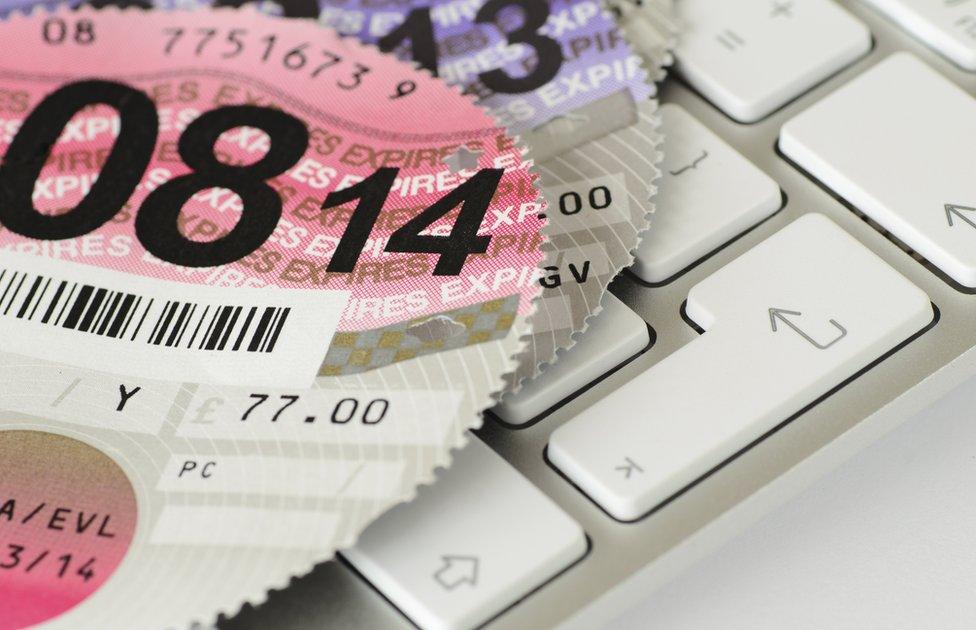
Car tax discs were abolished last October to try to save printing and administration costs
Tax discs were abolished last October to try to save printing and administration costs.
Motorists can continue to tax their vehicle at the Post Office, over the phone or online.
However, they do not receive a tax disc or any other physical evidence to put in their car windscreen.
Nottinghamshire Police said officers were doing an automatic number plate recognition patrol when they received an automatic alert from the DVLA database saying Mr Walker's van had been untaxed since 2014.
"It later transpired that the DVLA had provided incorrect information and the vehicle was, in fact, taxed," said a police statement.
The DVLA said in a statement: "We are very sorry for the inconvenience caused to Mr Walker.
"We process 44 million vehicle tax transactions each year and cases like this are very rare."
- Published4 May 2015
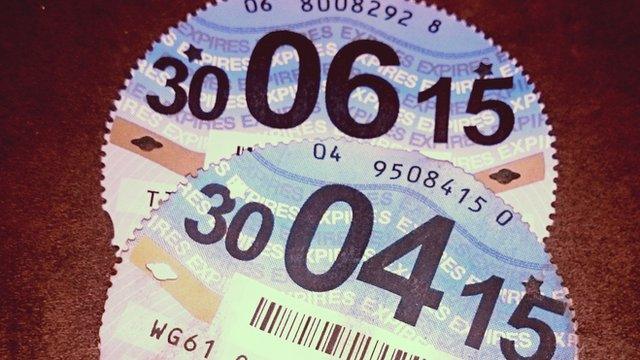
- Published1 October 2014
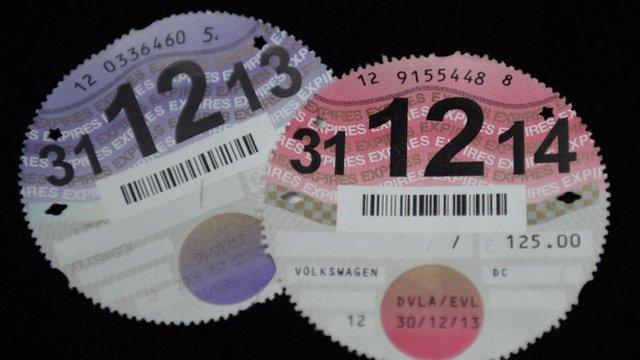
- Published5 December 2013
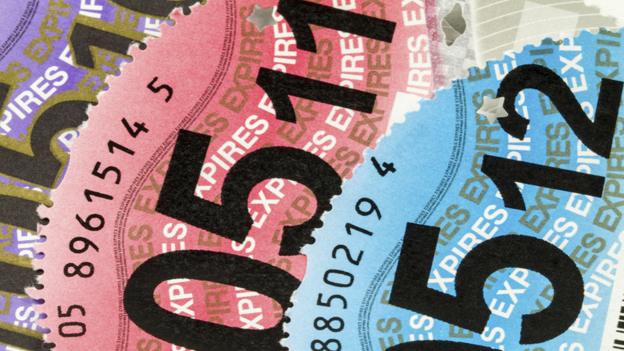
- Published5 December 2013
